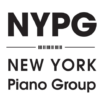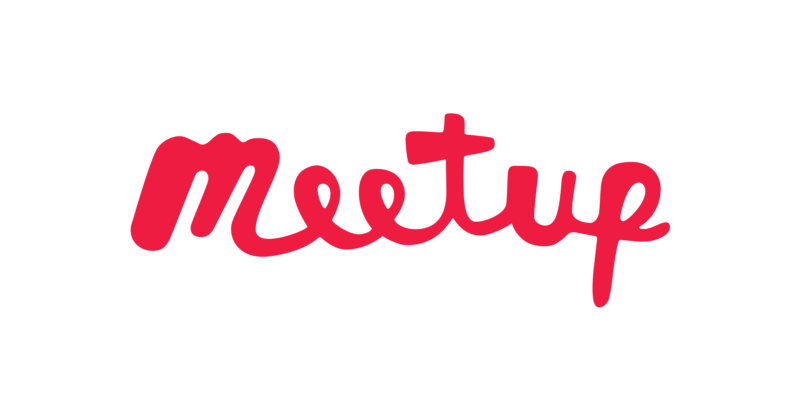JONATHAN LEVIN ON ENGAGING THE AUDIENCE

Born in North Carolina, Jonathan made his debut with the Raleigh Symphony Orchestra when he was fifteen. Since then, he has become a sought after recitalist and soloist, performing throughout the country in concert halls, museums, universities, schools, libraries and private salons. Jonathan was recently chosen to present a special performance of Gershwin’s Rhapsody in Blue at the Grand Kremlin Palace in Moscow, Russia as a part of the 4th Melody of Generations Festival with the Presidential Symphony Orchestra of the Russian Federation. Jonathan has played solo recitals and taught masterclasses all across the country including engagements in North Carolina, Tennessee, Mississippi, Alabama, Louisiana, Nevada, Florida, Washington State, California and also in Ontario, Canada. He has performed with the Durham Symphony, the North Carolina Symphony and as a returning guest artist with the Raleigh Symphony as well as appearances at the NC Governor’s Mansion and the NC Museum of Art. Most recently he was awarded 2nd Prize at the George Gershwin Brooklyn International Music Competition as well as a special prize for Best Performance of American Music.
"... a beautiful privilege not many people have..."
Can you describe your musical background?
I didn’t start playing especially early and no one else in my family was really musical, although most of my family has a deep appreciation for music. Growing up in rural North Carolina, it wasn’t something which a lot of people did, but I had two excellent teachers early on who inspired me not only to continue, but not to limit myself.
After tackling my first “big” piece at the age of 13 (Chopin’s 1st Scherzo), I decided that this was what I wanted to do with my life. I moved to NYC to attend Manhattan School of Music and this became “home base” afterwards.
What inspired you to come up with the program for your upcoming Carnegie Hall debut?
I have created a lot of themed programs over the years and when I decided on my first American music program a few years ago it was completely different. As I continued in my research and kept discovering new music and even started arranging and creating some music of my own, this program slowly emerged.
I didn’t want to play what most everyone else plays in Carnegie Hall – Classical, Romantic, Impressionistic and maybe some 20th century music thrown in for good measure. There’s nothing wrong with that sort of program of course, but it wasn’t me.
I wanted this to be more of a personal statement. Each of my compositions or arrangements are inspired by people I’ve known or experiences I’ve had over the years. You’ll hear music of Mark Stambaugh, my former professor from Manhattan School who was a big part of inspiring me to start composing again. One of my own compositions I’ll play was began while studying with him, and betrays influence of many of the works we were studying at the time – anything from Bach to Frederic Rzewski! Also featured is George Walker, who I believe to be one of the greatest living composers and Caroline Shaw, who I knew from competitions and conferences growing up in NC. She went on to become the youngest person ever to win the Pulitzer Prize in music and continues to have an increasingly versatile, multi-genre career. I’ll also play the hauntingly beautiful Three Visions of William Grant Still, one of the first African American composers to achieve widespread fame and the Reflections at Chopin’s Urn by the early 20th century Russian-American composer Vladimir Drozdoff, who’s music is starting to have a renaissance in the past few years. I’ll conclude the program with Gershwin’s Rhapsody in Blue. It’s possibly the most iconic American score and easy to take for granted as something that’s overdone or even trite. It’s form and melodies are so inevitable and intuitive, but to me, it is truly magical and it think will be an uplifting end to the evening. The program, overall, is a very special collection of music for me.
You are also a founder and director of the Clayton Piano Festival, can you tell us about some of the activities at the festival?
I founded the Festival in 2011 as a way of sharing music with a wider audience in a greater variety of formats. Since much of our audience did not regularly attend classical events, it was a challenge to create something that could be accessible to everyone and still maintain the highest levels of artistry.
A lot of our performances are in smaller venues – restored mansions, elegant wedding venues, libraries – we often have dinners with them, which have become quite popular, and promote a more social and less “stuffy concert hall” feel. We’ve had Halloween concerts where everyone dresses up (including the performer), elegant Valentine’s Day concerts with a full coarse meal and desert reception, a Russian themed concert, complete with Russian food, a concert of piano music from the movies with a guest TV anchor as MC, even showing movie clips in between some selections, and the list goes on.
My idea is that guest artists come to the festival and are able to do fun, creative and uniquely engaging things that they may not get to do in other places. It’s great fun and each year seems to top the last. In the final concert of this season, we will celebrate our 5th anniversary by playing a movement of a Beethoven symphony with five pianists on five different pianos at the same time!
How is the level of interest in classical music in North Carolina in relation to New York City?
It has grown greatly in the last five years and it’s exciting to see how the festival has drawn in so many people who previously never went to classical concerts. CPF is steadily becoming a highly anticipated part of the area’s cultural happenings. I feel like sometimes New Yorkers are somewhat jaded towards concerts, because there’s so much here it’s easy to take it for granted. I’m guilty of this too, we’re all so busy trying to live in New York City! But I do love the city and especially the musical events that take place here.
I would say that it’s just a totally different feel in Clayton and often it’s more liberating to play and produce great concerts where people come with less preconceived ideas of how music should go and are there simply to experience something beautiful and enriching.
How do you feel about the state of classical music today?
It is changing. I don’t think it’s on the wane as many would say but the way that people want to experience it is changing. I think there’s still something special about hearing Beethoven in a darkened concert hall with beautiful acoustics, but that’s not the ONLY way.
Imagine hearing it outdoors in the fields, just as Beethoven would on one of his many walks through nature. That’s my next project I guess! Every year more and more concert organizations, symphonies, festivals, opera companies and a myriad of young start-up hybrid companies (for lack of a better term) are trying new ways of communicating music to wider audiences. Sometimes they do it subtly and sometimes not so much! But even though there are always successes and failures in trying new things, I actually think it’s a very exciting time to see the evolution of concert music and be involved in shaping it’s rapidly changing future.
Do you have any music advice to give to those who wish to pursue a career as a classical pianist?
First and foremost you have to love it more than anything else. It sounds cliché but at some point that will be the only thing keeping you from quitting to become a lawyer (for instance). You have to be willing to put in the work, often a LOT more work than you could ever imagine, seeming to return to square one every other day or two.
After that my advice is “you do you.” Find your own unique voice, that thing (or usually things) which set you apart. You don’t have to go to Juilliard or enter the Tchaikovsky Competition to be great. A great artist is a great communicator, one who moves people or gets them to think. If you can find a way to do that, then you’re on the right track.
The great pianist William Kapell once said that the most important moments in peoples lives are when their identities become linked to those of others, and that’s exactly what happens when you’re in a performance where you’re “getting lost” in the music.
Sharing music in that way is probably more direct and more powerful than any other language and that’s a beautiful privilege not many people have.
Jonathan Levin performs on Tuesday, September 20, 2016 at Carnegie Hall. For tickets, click here. Learn more about Jonathan Levin at www.jonathanlevinpianist.com.

